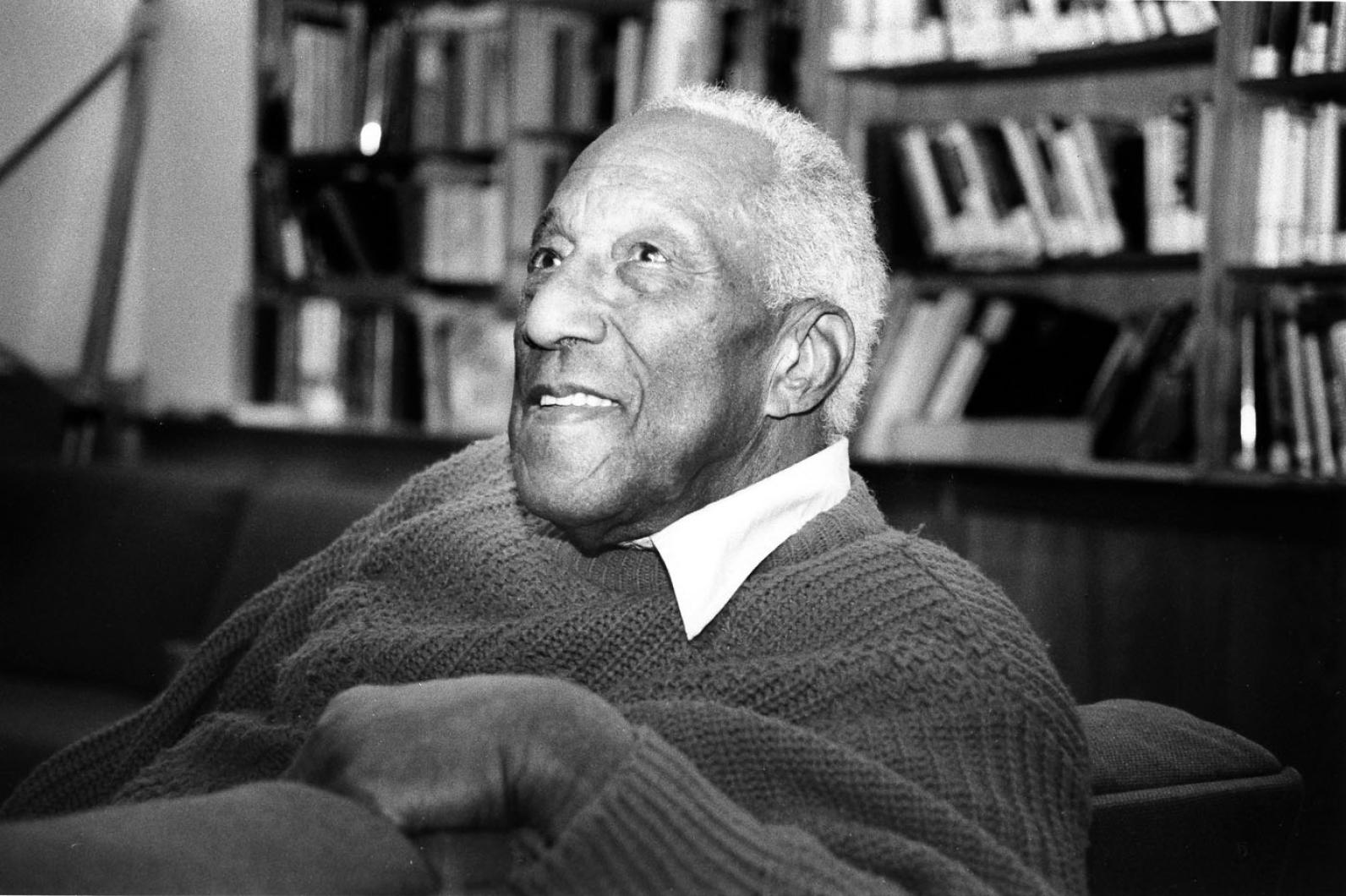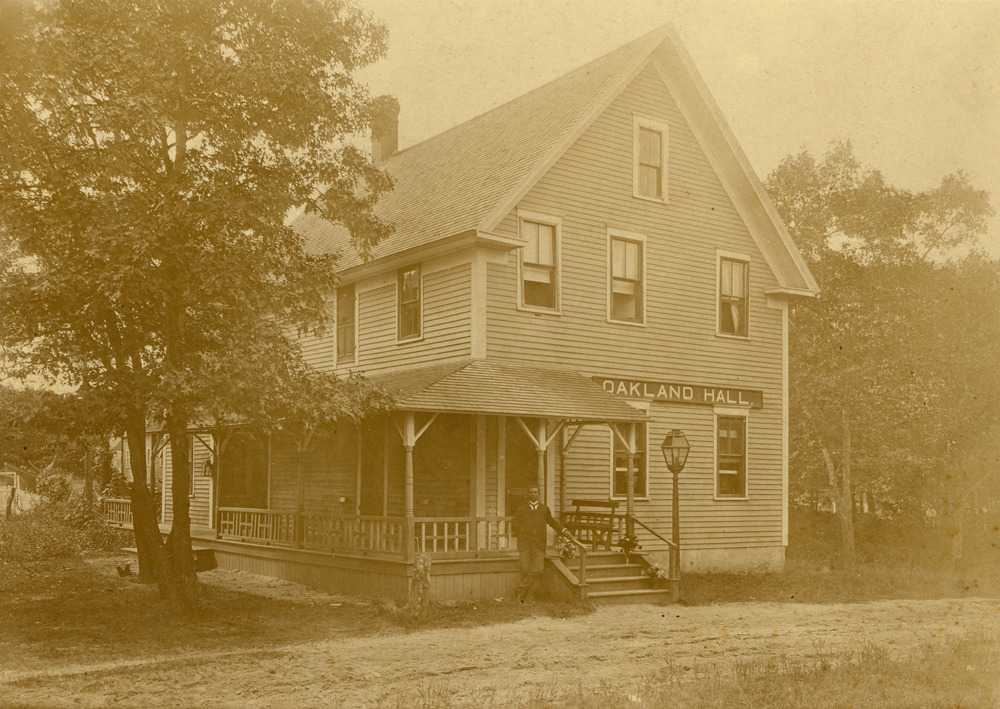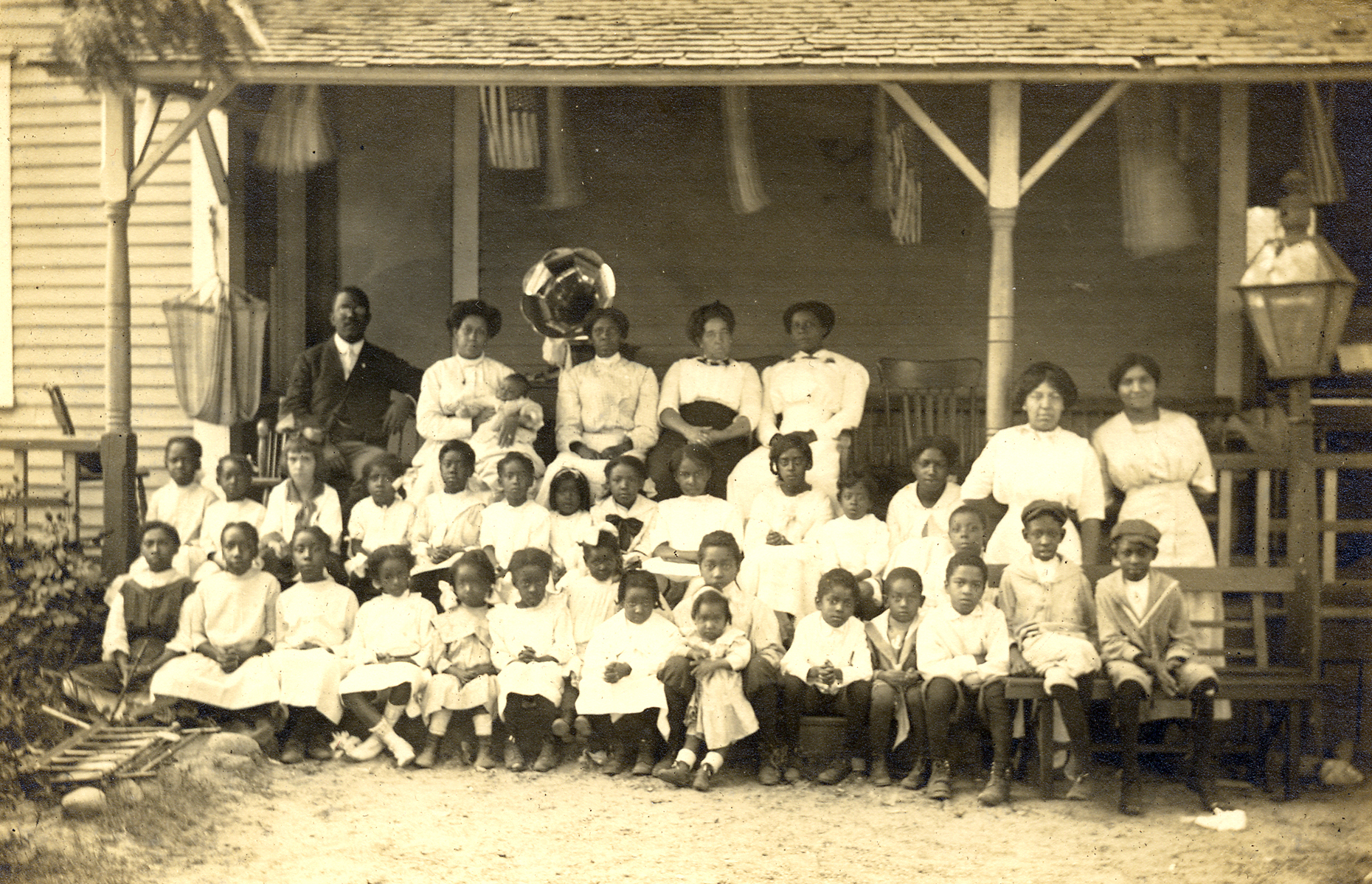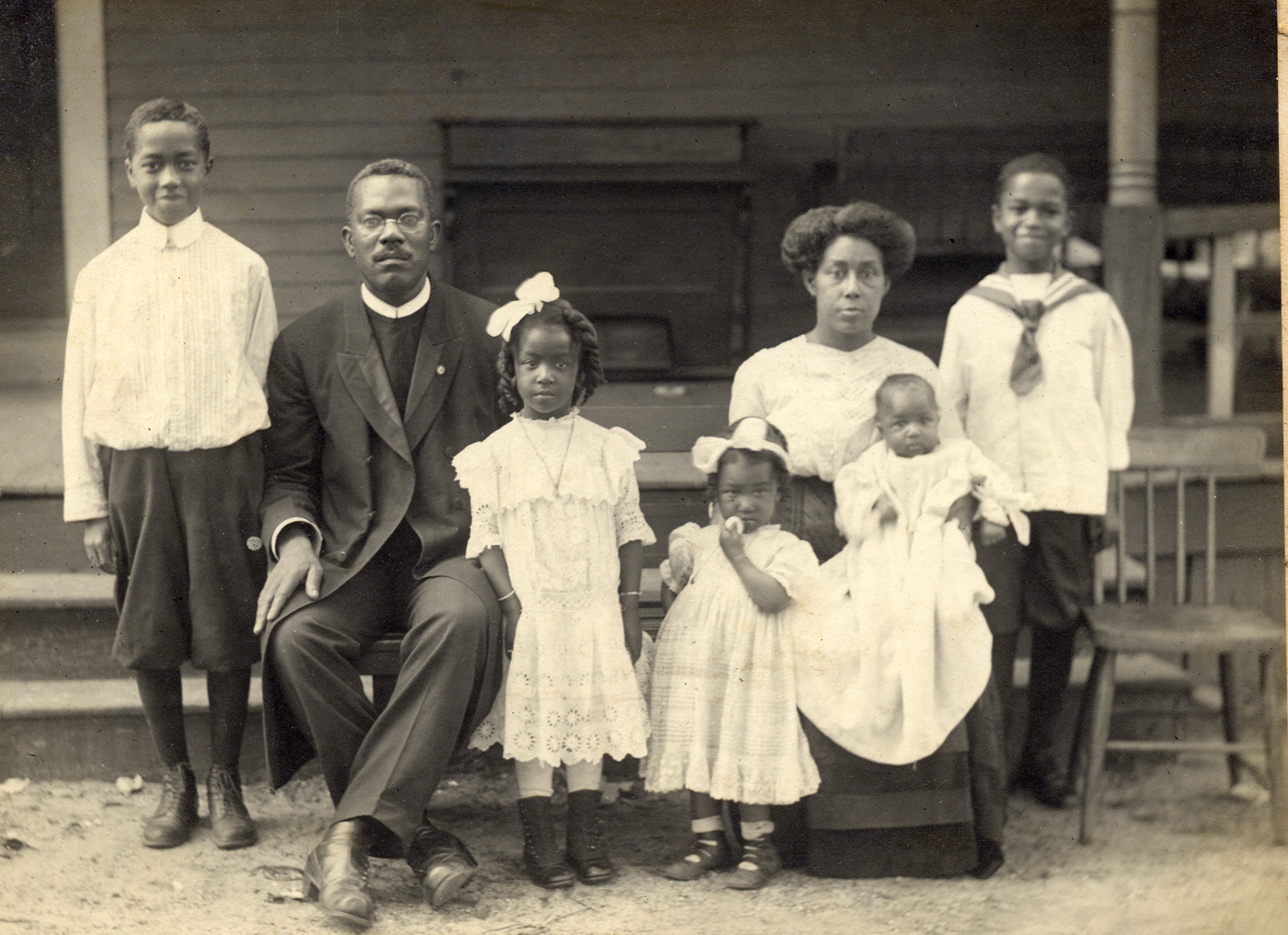Editor’s Note: The following is an edited excerpt of an interview done in 1996 by Linsey Lee with Dean K. Denniston, son of the late Oscar Denniston. The interview is published in Ms. Lee’s book Vineyard Voices; it appears here with permission from the author, who heads the Martha’s Vineyard Museum’s oral history center.
My father, Oscar E. Denniston, came to Martha’s Vineyard from the British West Indies in the year 1901. Captain Madison Edwards, the chaplain from the Seaman’s Bethel . . . used to sail between the Vineyard and Jamaica. On one of his trips he became ill over there and my father was a chaplain in a seaport area there . . . and my father assisted him, so they became very good friends. So Captain Madison Edwards of Vineyard Haven convinced my father that Martha’s Vineyard would be a good place for him to come and live . . . he provided work for my father at the Seaman’s Bethel in Vineyard Haven.
Then after awhile my father became — they called him an evangelist, at a mission called the Oakland Mission, founded by a Susan Bradley, in Oak Bluffs on Masonic avenue. What Miss Bradley did was to help all the Portuguese people that had come from Portugal and the Azores to the Island. They assisted them in becoming naturalized citizens.
My father went from the bethel to Oakland Mission as her assistant. Then after Susan Bradley died in 1908, my father at the same location founded Bradley Memorial Church. And he led that congregation, or that church for 46 years.
The chapel was on Masonic avenue. We would have church meetings in the chapel attached to the house we lived in . . . it was a space set aside for the particular purpose of worship with benches and hymnals and our organ . . . My father’s early congregations included white people and Portuguese. But for the most part the people of color would go to the Bradley Memorial Church.
As the years went by, that space at the Bradley Memorial Church became too small. So there was a theater on Circuit Avenue, near Masonic avenue, that had been closed up for a long time. The Bradley Memorial Church and my father purchased this particular building and made it into a church. It was an unheated building. We used it only in summer . . . we came back to Masonic avenue after Labor Day.
Let me tell you this story. My father was an outstanding citizen of Oak Bluffs. Oak Bluffs had a school committee of three people. One of those persons in office died, a Mrs. Vincent. She had a year to go on her term of office. This was sometime in the 30s, I think. It became the task of the other two school committee members, Dr. Clement Amaral and a Mrs. DeBettencourt, it became their task to select a person to finish the term of the deceased member. They selected my father. When time came for reelection, my father took out papers. The two members of the school committee stood behind him one hundred per cent.
My father was defeated. He was defeated because he was a black man. Some of the people said, and this is a direct quote: “If we elect Mr. Denniston to the school committee, there’s a possibility we will have black teachers in the schools.” . . . Well, I thank God I have lived to see two men to be superintendent of the whole Island and both of them are colored. But there were a few people who stood by my father in Oak Bluffs and to this very day I remember them. A few of the people in Oak Bluffs stuck their necks out. They said, “We’re going to vote for Mr. Denniston. We don’t care what you say.”
So you did find prejudice on Martha’s Vineyard. It might have been up on the roof looking down and it might have been underneath the seat, or hanging around the doorway. It might not have been in the front page or in the front line, but it was there. It definitely was there. The Vineyard was secondhand prejudiced. Unwritten. They didn’t not allow you, they just were “full.” They didn’t have any room, “All reservations taken.” That’s back door prejudice.
There were certain jobs black people just did not get. They didn’t say, “We won’t hire him because of his color,” but it just didn’t happen. I can be specific. You didn’t see black people working in the stores, the grocery stores. You did not have black people, black guys, dealing with the public. You could work in the back room, that’s in Oak Bluffs. I got a little job and my brothers and I, we got jobs in the A& P and McNeil’s, but we were behind the scenes. You did not wait on customers.
Once a year . . . they would put on a school play. They would select the kids from the senior class, the junior class. Never once did I get a chance or was I asked to participate in those school plays. The kids of color never had a chance to be in any of those productions. Never. Unthought of. It was just understood. There was a little pinch. You’d wonder why.
I remember when the Brownies came to Martha’s Vineyard. My sister said something, maybe she’d like to join the Brownies, and she was told no, the Brownies organization was not for her. Color of her skin.
I was the first person of color to go to D.C. from the Oak Bluffs schools. Yeah, guess I was a rebel. The senior class of the Island schools would always go to Washington after they graduated or just before. I think they still do that. As you know, Washington, D.C., was a prejudiced city. People of my color for many years were not allowed to stay in the hotels or go in the restaurants. So that meant that students of color stayed home because they knew they would be separated from their class. When it came my turn to go in 1931, I think I shook them up.
I said, “I’m going to Washington with my class.” They said, “Okay.” What the heck could they say? I was part of the class and we raised the money. I knew that I would undergo some difficulties. I’m prepared for all this.
So in the daytime we would go to the government buildings where there’s no restrictions. We could eat in the government cafeteria, no restrictions. But at nighttime I could not stay in the downtown hotel. They apparently had made arrangements for me to stay in a rooming house or a room in somebody’s home in the Northwest where most of the people of color lived. So I was dropped off there. The next morning I got picked up.
When we got back up to New York and the class was staying at a hotel in Times Square, the man who was in charge of our party said, “Dean, you’re going to Harlem.” Then this 17-year-old kid sobered up, so to speak. Well, I was just commencing to bloom. I put up a fight for myself. I went back into the hotel and knocked on his door and I said, “We are now in New York city, largest city in the world, and it’s open to everybody. I am not going to Harlem.” He said, “Okay.” So I was able to stay in the downtown hotel. That rascal. I still get mad when I think about that. I’ve never quite forgiven him for trying to shuffle me off to Buffalo — I mean Harlem.
All of us — my brothers and sisters — left Oak Bluffs to further our education. Now when we were coming up, that was more the exception than the rule. At one time, there were four of us going to Boston University at the same time . . . We hired rooms because we couldn’t stay in the dorms. If you can believe that. Seems like a thousand years ago. People of color, I don’t know, we were contaminated.
But you can’t go through your life moaning and groaning. You make the best . . .
My father died in 1946, and the church sort of went downhill after it lost its leadership. They lost the physical plant on Circuit Avenue; that was torn down. Then they operated in the church the Pentecostal people have now. They were there for a few years. The only remnants they have of the Bradley Memorial Church is what they call the Bradley Memorial Missionary Society. It still exists. They still meet, they still carry on missionary work.









Comments
Comment policy »